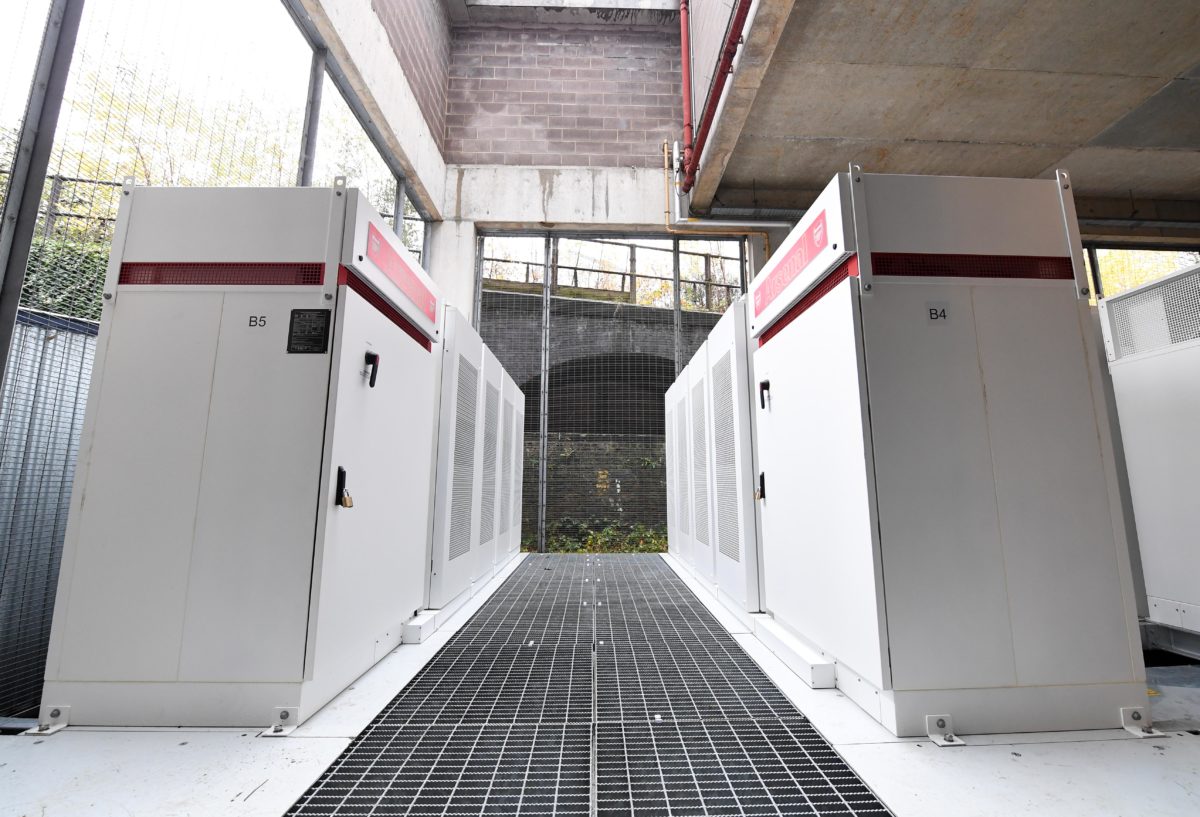Battery storage system installer and developer Pivot Power unveiled a 2 MW/2.5 MWh Tesla-manufactured storage system at Arsenal FC’s Emirates Stadium in London, the U.K.
The grid connected system, unveiled on Monday, will be expanded to 3 MW/3.7 MWh by summer 2019. The battery will reduce peak load consumption, thus enabling the football club to run a lower power bill on matchdays. Reportedly, the system can power the entire stadium for longer than the duration of a match. However, the objective is not to replace the diesel gensets for emergency power supply, but rather to bring down peak demand costs.
Pivot Power CEO Matt Allen said, “Arsenal is showing how football clubs and other big power users can save money and support the UK’s climate change and clean air targets. Batteries are central to creating a cost-effective, low-carbon economy and we are keen to help government, local authorities and businesses seize the opportunities they offer.”
The storage system will source its energy via Octopus Energy, which closed a green energy supply deal with Arsenal FC in August last year. In between matchdays, the system will also be used for trading Octopus Energy’s solar energy on the spot, day-ahead and intra-day markets using autonomous trading software by Open Energi. This opens up additional revenue streams for the football club.
Arsenal managing director Vinai Venkatesham said, “This is a big step forwards for us in being efficient with energy usage, and it builds on our work in reducing our carbon footprint as an organization. We have been powered by green energy since 2016 thanks to Octopus Energy, and the battery storage system will support our efforts further.”
Arsenal, together with Octopus Energy and Pivot Power, now plan to go beyond cutting costs and carbon at the Emirates Stadium, and are working on a joint project to increase global access to energy. They expect to announce details in the coming weeks.
Earlier this year, Nissan and The Mobility House commissioned a 3 MW storage system using second life EV batteries from Nissan. “The energy storage system will provide back-up power, reducing the use of diesel generators, and provide relief to the energy grid by flattening the peaks that occur during concerts,” Nissan said in its statement at the time.
This content is protected by copyright and may not be reused. If you want to cooperate with us and would like to reuse some of our content, please contact: editors@pv-magazine.com.




By submitting this form you agree to pv magazine using your data for the purposes of publishing your comment.
Your personal data will only be disclosed or otherwise transmitted to third parties for the purposes of spam filtering or if this is necessary for technical maintenance of the website. Any other transfer to third parties will not take place unless this is justified on the basis of applicable data protection regulations or if pv magazine is legally obliged to do so.
You may revoke this consent at any time with effect for the future, in which case your personal data will be deleted immediately. Otherwise, your data will be deleted if pv magazine has processed your request or the purpose of data storage is fulfilled.
Further information on data privacy can be found in our Data Protection Policy.